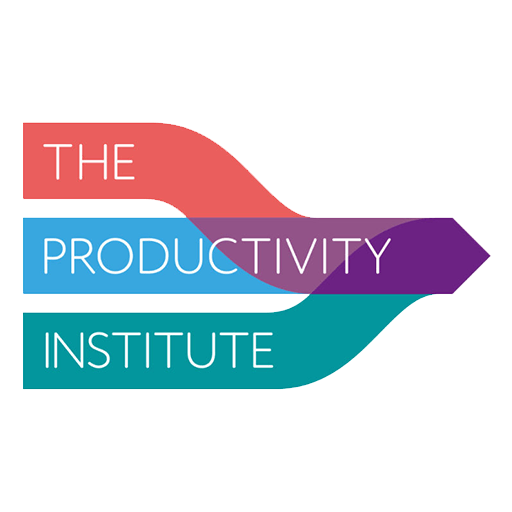Call for International Productivity Fellowships: mapping pro-productivity policies

 Given the importance of productivity for growth and development, governments have been exploring and implementing a wide range of policies to strengthen productivity growth. A recent paper (van Ark, de Vries and Pilat, 2023) developed a typology for such pro-productivity policies.
Given the importance of productivity for growth and development, governments have been exploring and implementing a wide range of policies to strengthen productivity growth. A recent paper (van Ark, de Vries and Pilat, 2023) developed a typology for such pro-productivity policies.
The paper proposed four categories of pro-productivity policies, distinguishing between the direct and indirect drivers of productivity, and the policies related to those drivers:
- Policies aimed at the Accumulation of Factors of Production (primarily direct drivers)
- Policies aimed at Technological and Structural Change (primarily direct drivers)
- Policies aimed at Markets and Resource Allocation (primarily indirect drivers)
- Policies aimed at Internationalisation (primarily indirect drivers)
Policies linked to factor accumulation and technological and structural change are directly aimed at the main drivers of economic and productivity growth, i.e., investment, labour market and skills formation, technology, and innovation and thus correspond to the direct drivers of productivity. Policies linked to markets and resource allocation act more indirectly on productivity growth, as they influence the incentives for firms to increase productivity (e.g., through the pressure of competition) and because they affect the allocation of resources in the economy. Policies aimed at internationalisation also act more indirectly as they influence all other categories of pro-productivity policies, e.g., in facilitating investment, but also by supporting market development, fostering competition, and affecting technological and structural change.
The call
This typology has thus far been applied in short case studies for four G20 countries at different levels of economic development, i.e. Brazil, India, South Korea and the United Kingdom (Van Ark et al. (2023).
To advance research on the economic analysis of pro-productivity policies across countries, The Productivity Institute is calling for research proposals that would apply the typology in a more extensive manner to other countries, building on the approach set out in Van Ark et al. (2023). Papers would be expected to:
- provide a review of productivity trends in a specific country, covering the period from the 1960s to the present;
- apply the typology of pro-productivity policies to a specific country, testing to the typology and suggesting modifications where needed;
- provide a review of pro-productivity policies in that country covering the period from the 1960s to the present, with a specific focus on three or four distinct and important periods of policy change and reform, e.g. in 1960s/1970s, 1990s and 2010s/2020s;
- explore the role of key pro-productivity policies in supporting (or holding back) productivity growth in the country;
- provide a forward-looking perspective on pro-productivity policies, indicating the main areas in need of policy reform .
Deliverables
- A draft research paper of up to 30 pages (excluding supporting materials and appendices) to be published as a TPI Productivity Insights paper.
- Participation in a 2-day workshop at The University of Manchester (preferably in person; virtual participation by exception).
- Resubmission of the paper to be published as a TPI Insights Paper following comments from the project leaders (Van Ark and Pilat), the workshop and other reviewers.
- Contribution of a shorter edited version of the paper (about 15 pages) to an edited volume to be submitted to a publisher.
- An engagement plan for presentation of research results in the author(s)’ own country, e.g. in research and policy seminars, a blog or short report.
Application process
The Productivity Institute welcomes proposals from any country in the world, providing there is a sufficiently strong basis of empirical and policy-focused research related to productivity growth in the country, allowing for the application of the typology. Depending on the quality of the proposals, TPI funding will be made available for 12-15 papers.
Applicants are required to submit a written proposal for their research activity using the proposal template provided, along with detailed CV(s) of researcher(s). Proposals should include information about the empirical basis for policy-related productivity research in the country, indicate why the country is of interest from the perspective of productivity analysis, and include a detailed outline of the proposed paper.
Applications need to be received by 11.59pm UTC on Friday, 18 October 2024. All submissions should be made via email to tpi-applications@manchester.ac.uk.
Proposals can be made by individuals or organisations (required to name the researchers). Authors will be appointed as International Productivity Fellows with TPI for the duration of the project.
Proposals that have been accepted will be financed for a maximum amount of £10,000 (pounds sterling). This sum includes any costs for travel to Manchester for participation in the 2-day workshop. Accommodation and meals for the duration of the workshop will be organised and funded by The Productivity Institute.
Researchers selected for the project will be notified in the first half of November 2024. The research activity is expected to start on 1 January 2025 and to be completed by 31 December 2025.
The project will be overseen by Prof. Bart van Ark, TPI Managing Director and Professor of Productivity Studies, and Dr. Dirk Pilat, TPI Research Fellow and Associate Researcher at the Valencian Institute of Economic Research.
Conditions of the award
- All funding will be subject to ESRC/UKRI terms and conditions and additional terms as may be required by The Productivity Institute, which are non-negotiable.
- All payments will be made quarterly in arrears. We will make the first payment of £5000 on completion of the draft research paper on 30.04.25. The final payment will be made on completion of the project but no later than 31.12.25.
- VAT is not applicable for these projects.
- We expect all projects to start on 1.01.2025 and be completed no later than 31.12.2025.
- The Productivity Institute is unable to arrange for any extension of the funds past the agreed end date.
- Research Fellows are expected to contribute to future Productivity Institute seminars/events, and to inform The Productivity Institute of any research successes resulting from this award (such as subsequent grants, awards and publications).
- Applicants are expected to undertake any engagement activities which arise from the project and report on these activities to The Productivity Institute (as per UKRI terms and conditions).
- Applicants will need to adhere to data protection and GDPR guidelines, and to the UKRI’s guidelines and procedures on research integrity, according to the UKRI’s Policy and Guidelines on the Governance of Good Research Conduct, as well as the ESRC’s– ethics policies and procedures.
Questions about this proposal may be addressed to tpi-applications@manchester.ac.uk.




